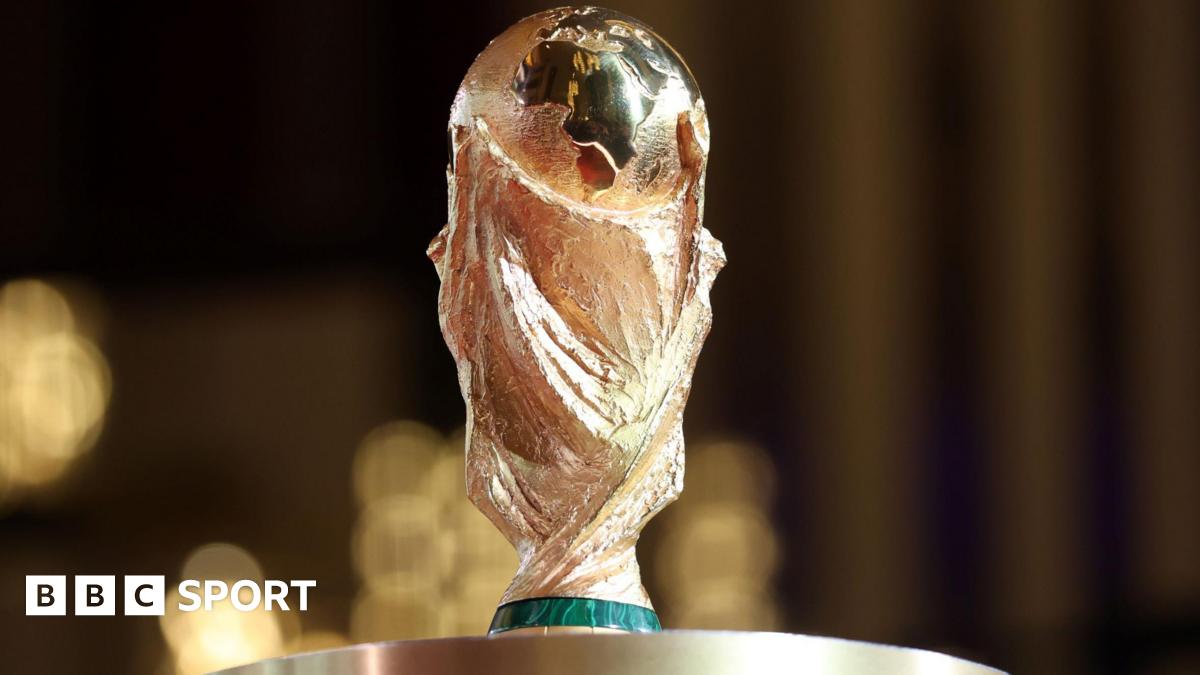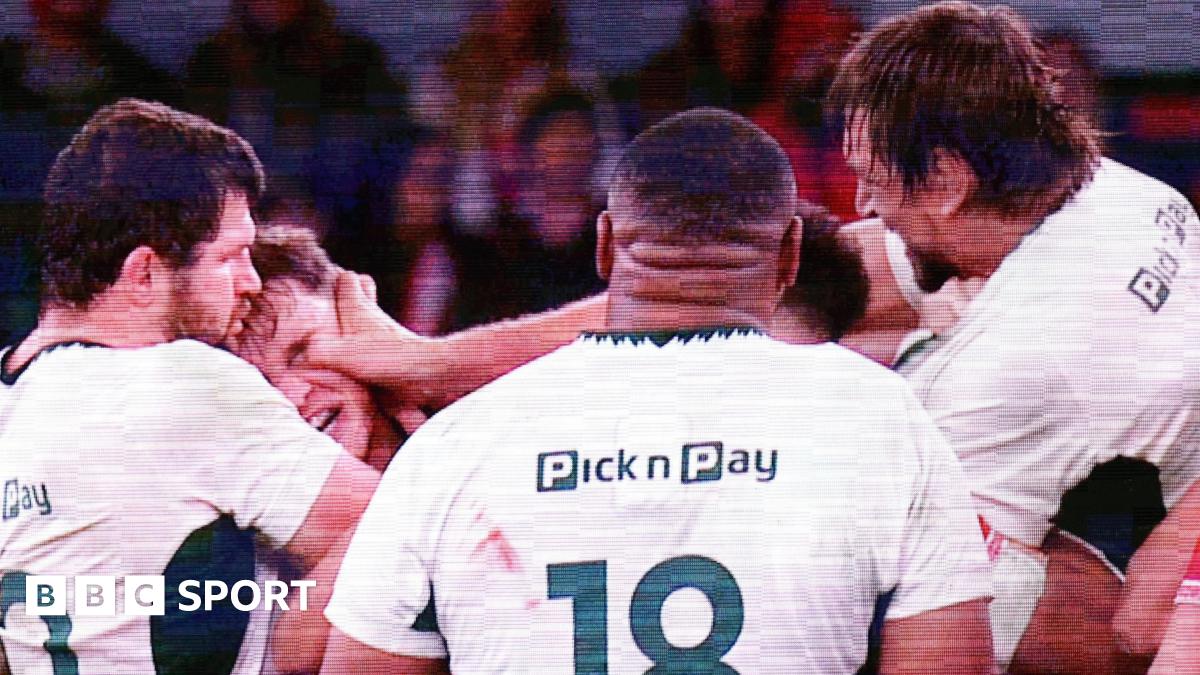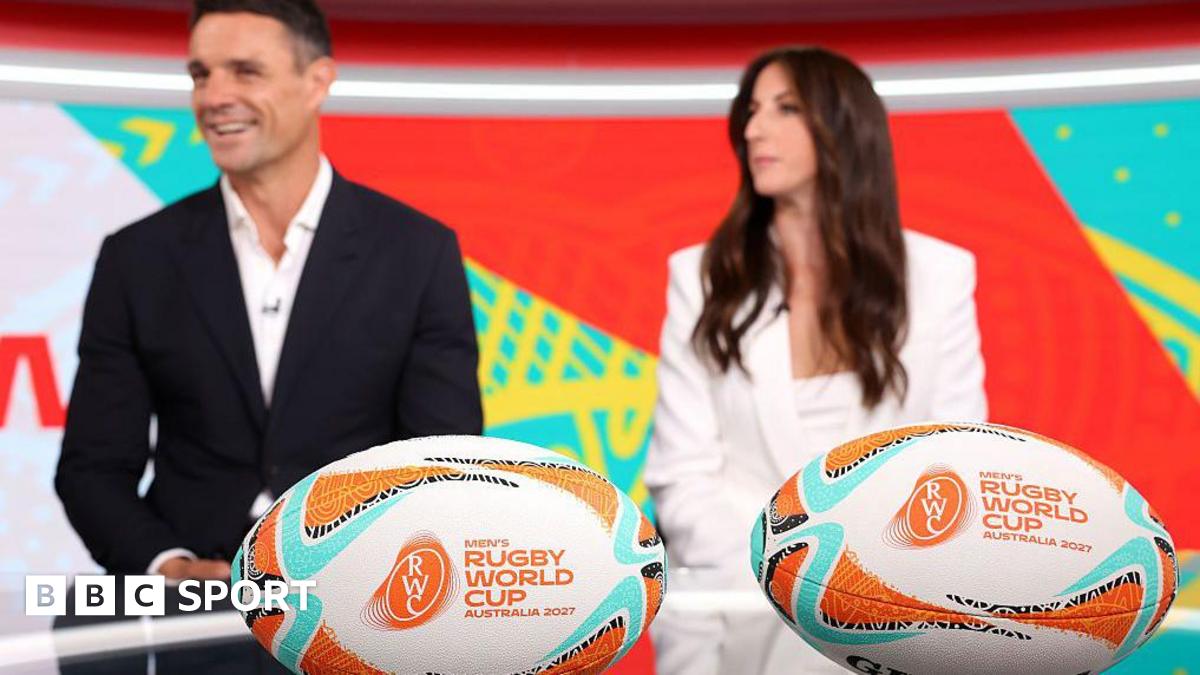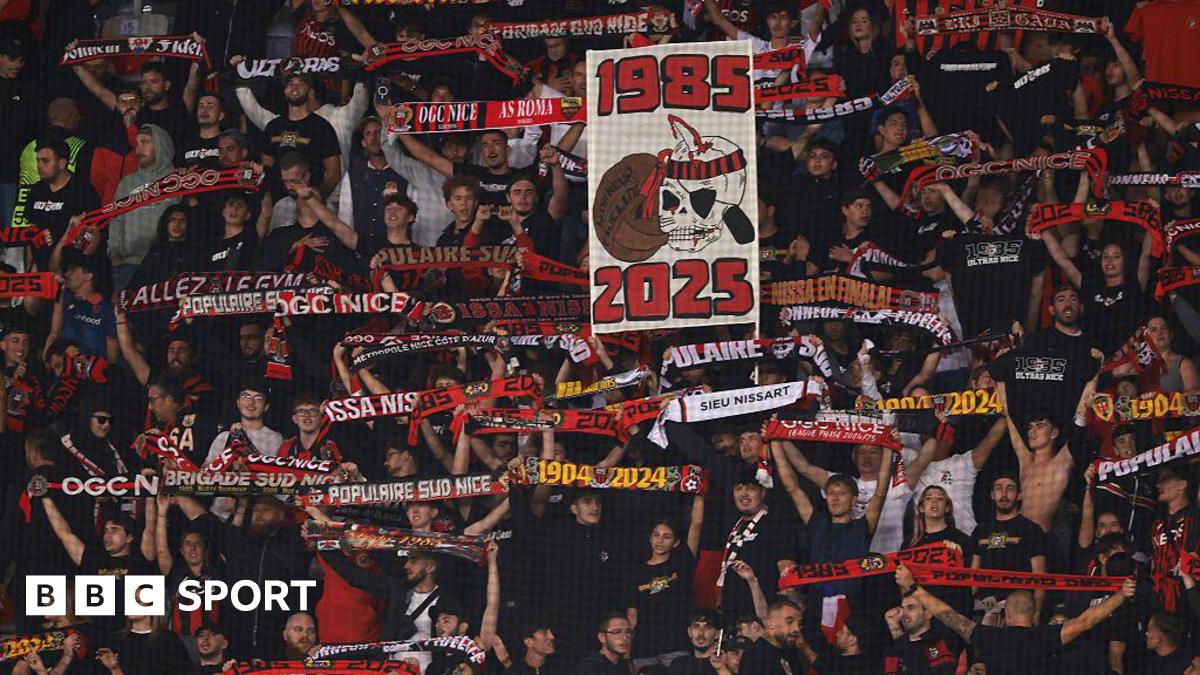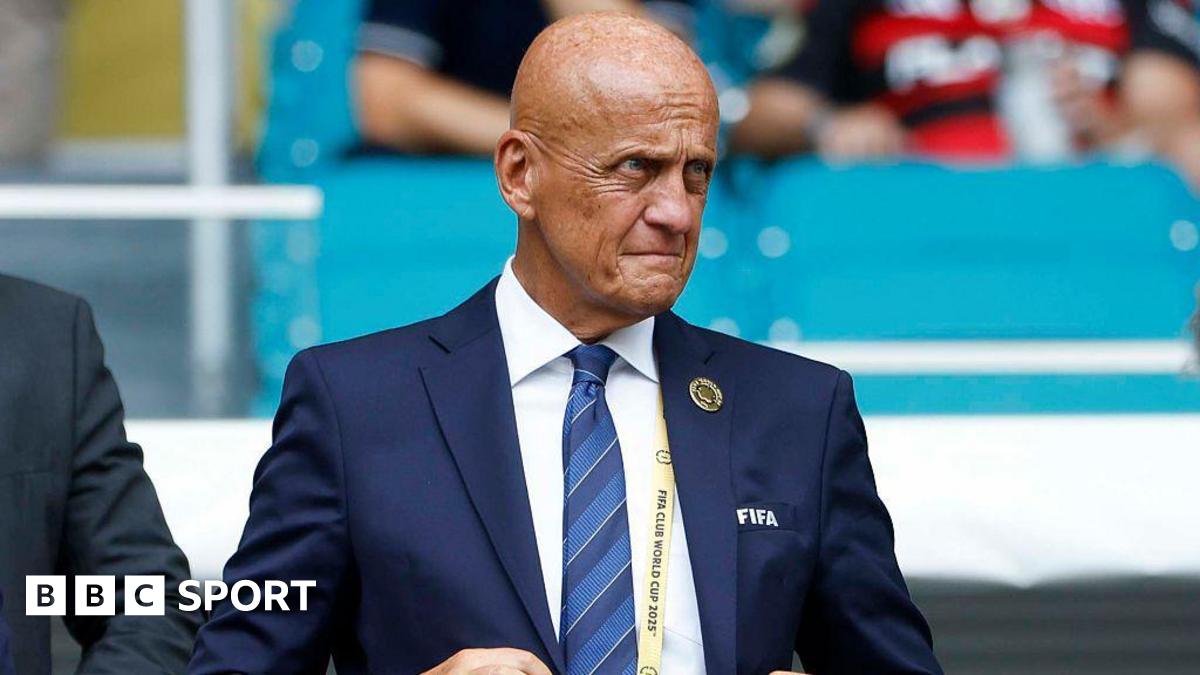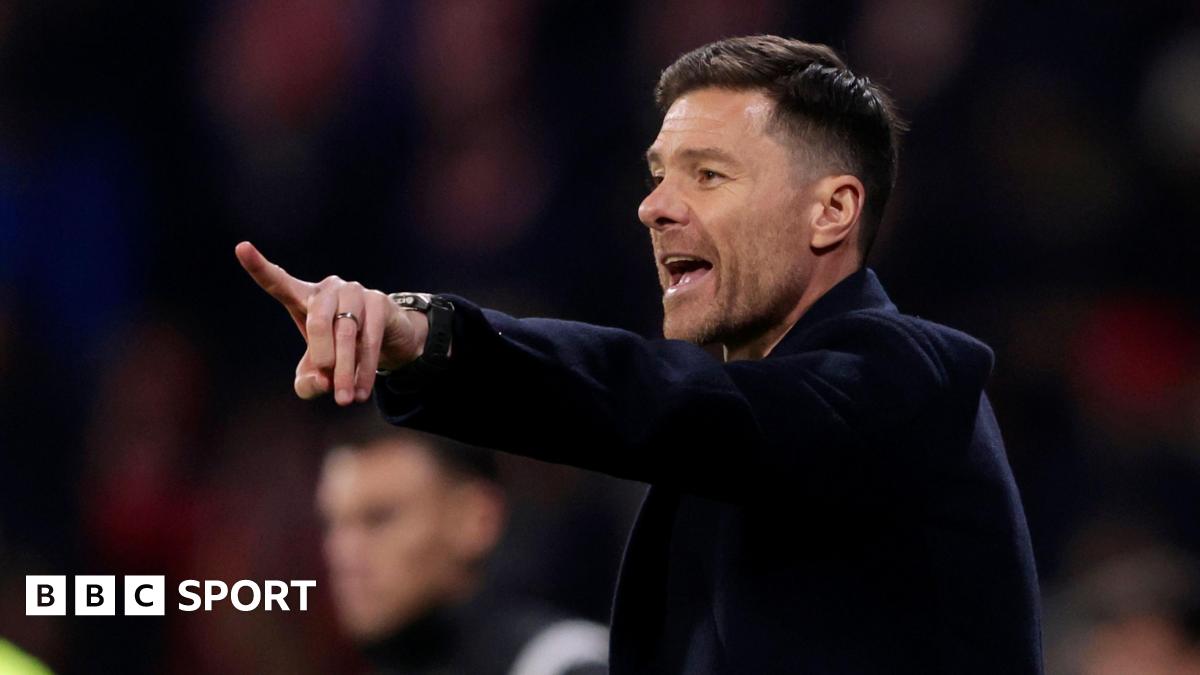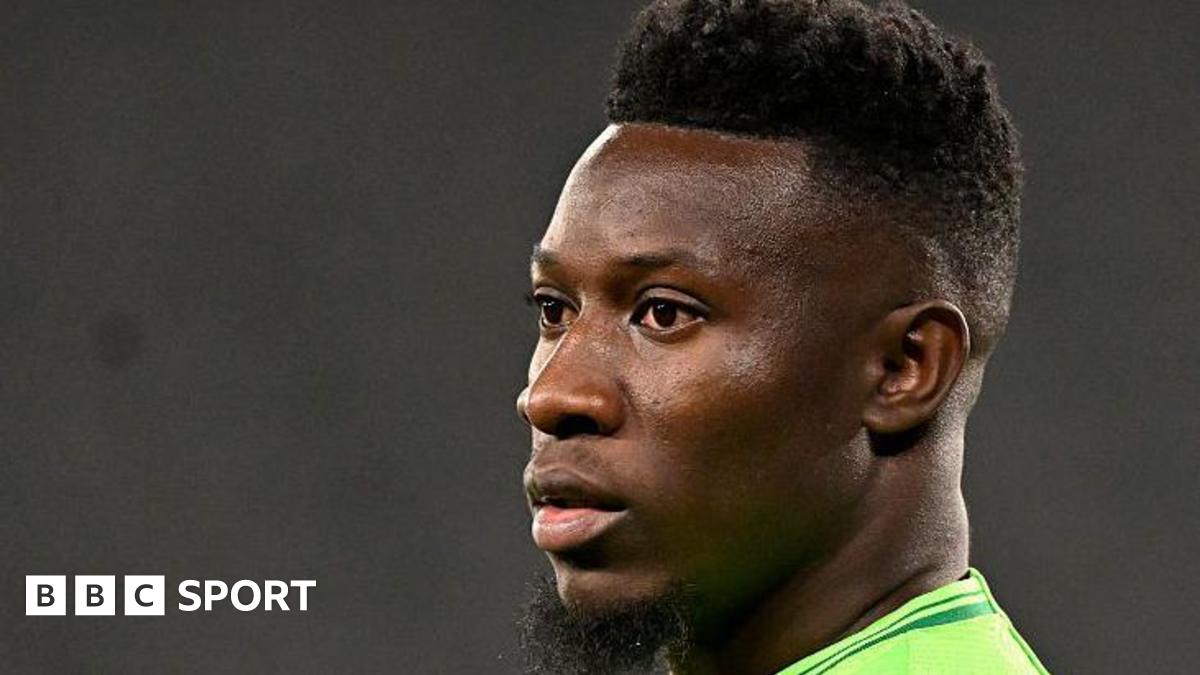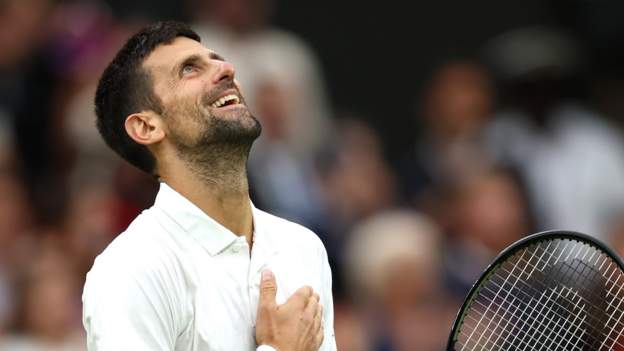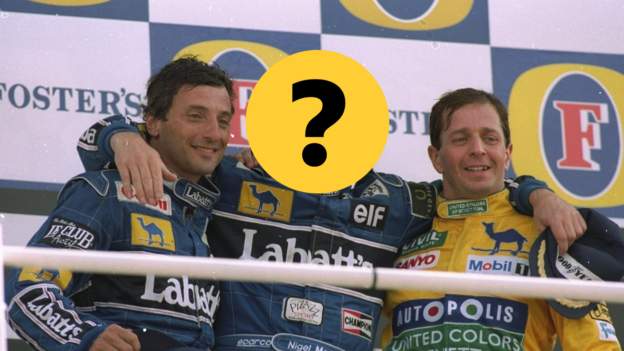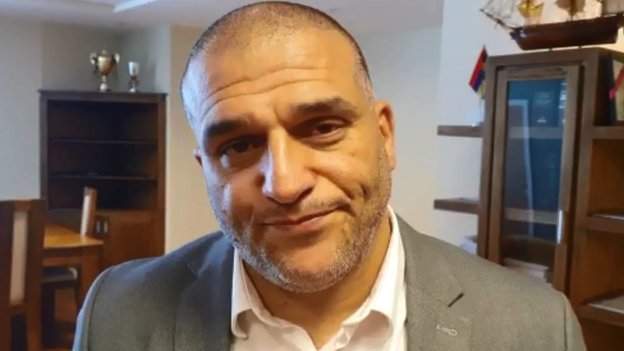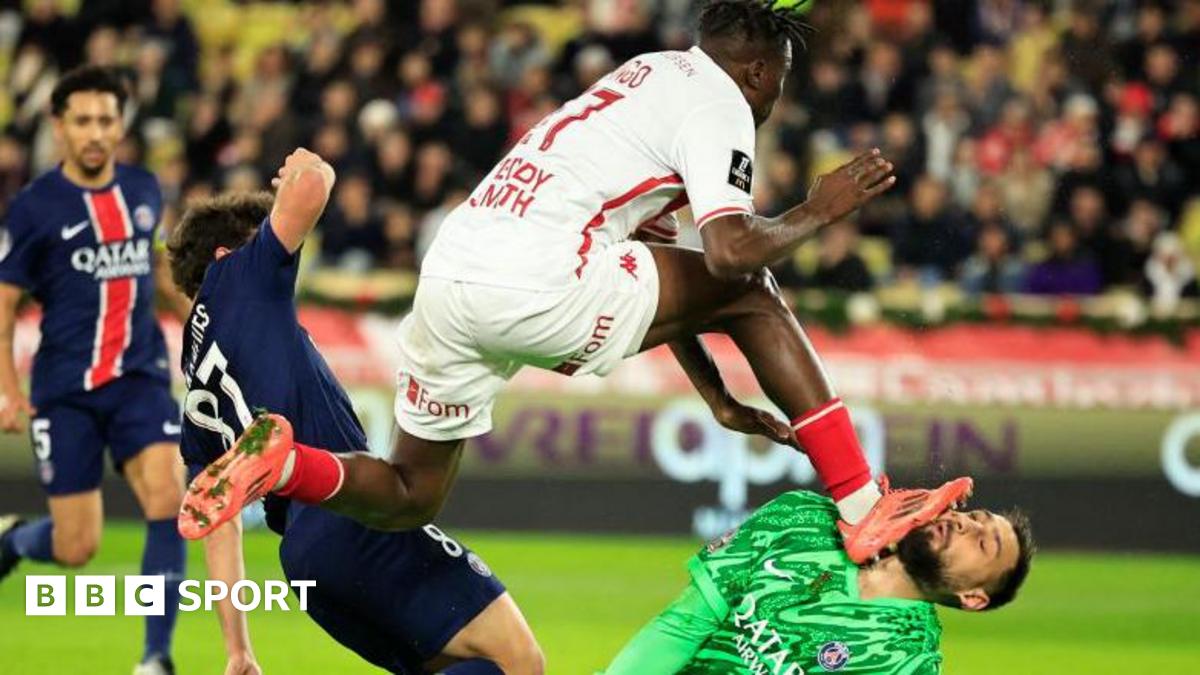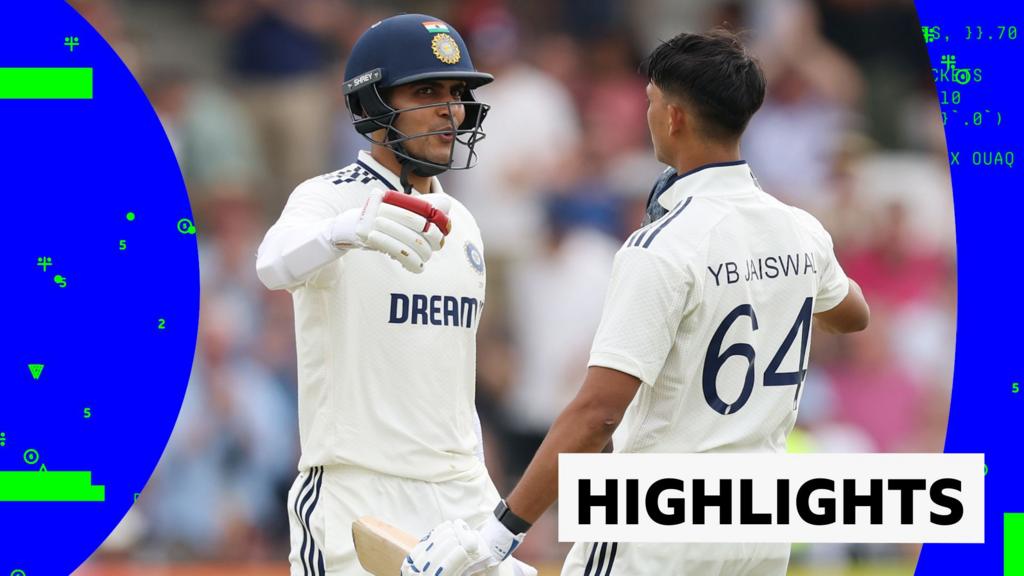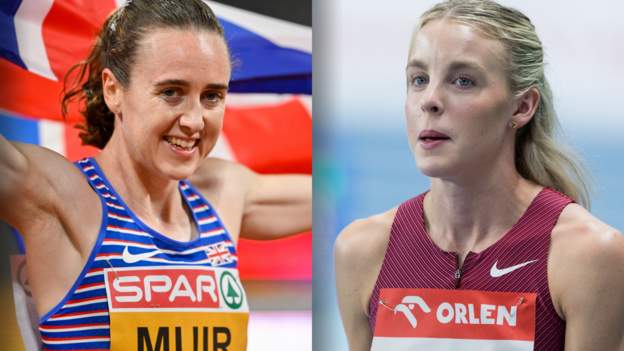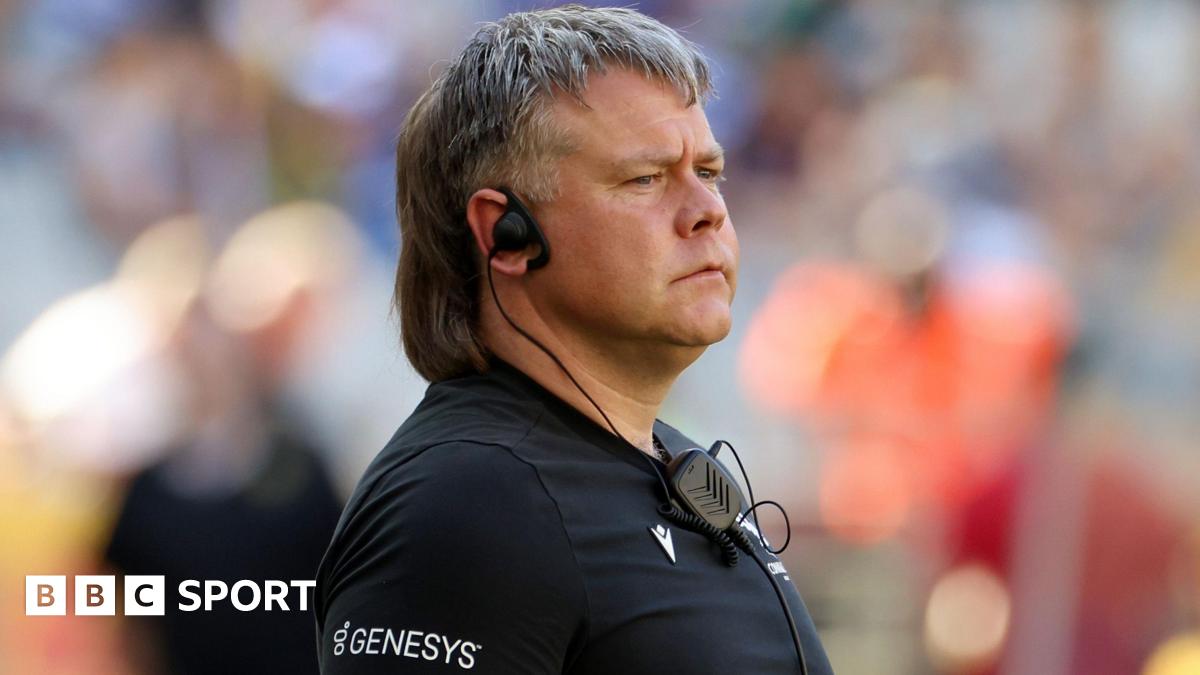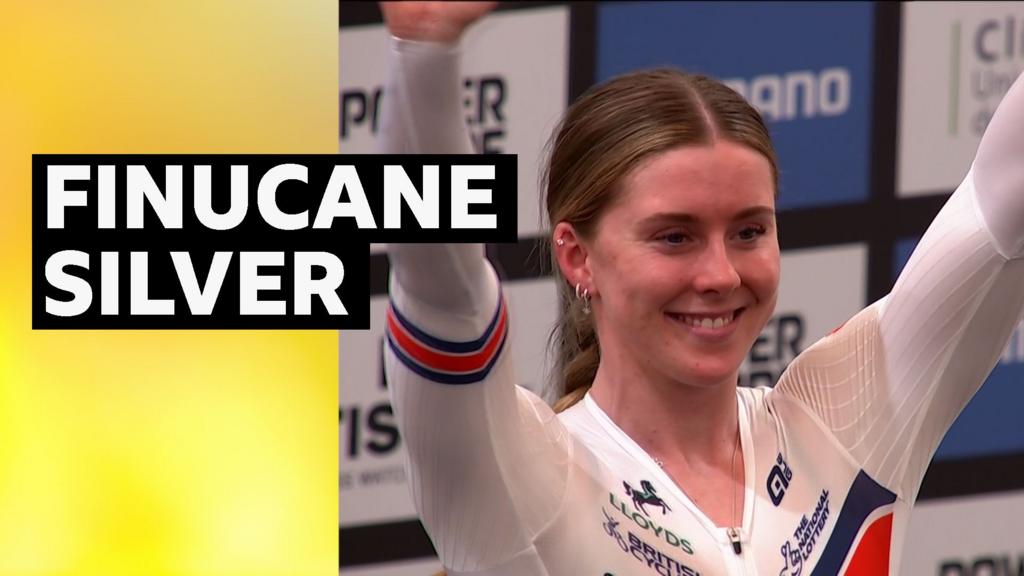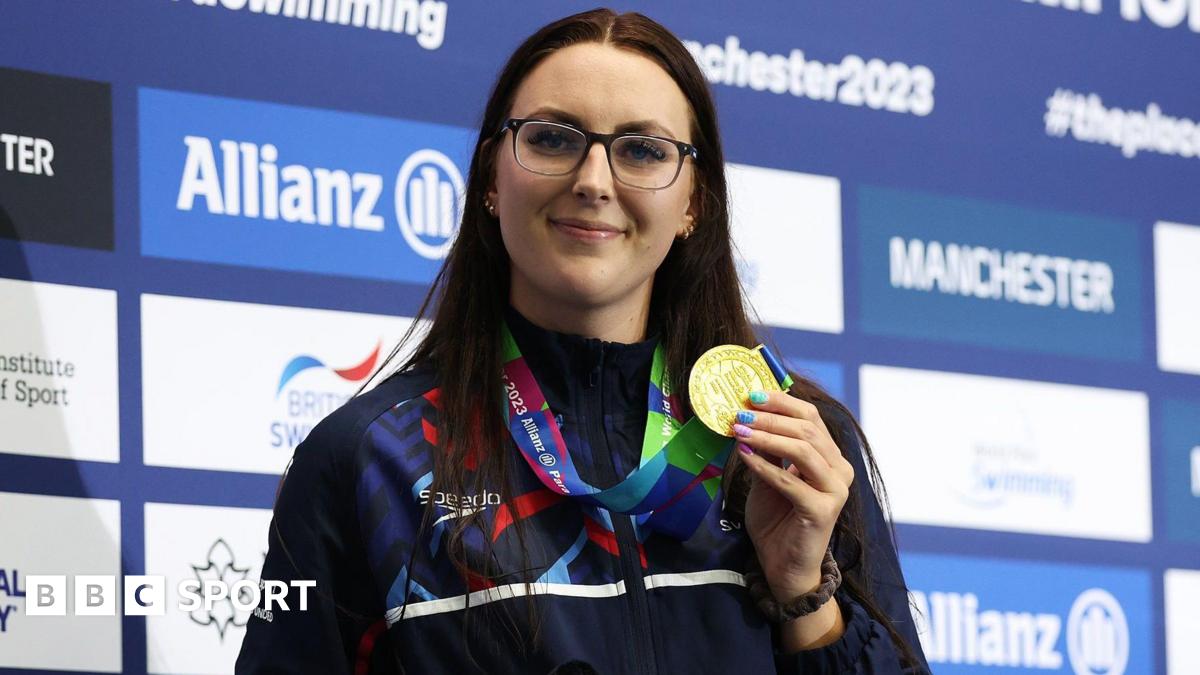| Venue: All England Club Dates: 3-16 July |
| Coverage: Live across BBC TV, radio and online with extensive coverage on BBC iPlayer, Red Button, Connected TVs and mobile app. More coverage details here. |
Novak Djokovic reached the Wimbledon men’s singles final for the fifth successive year with a dominant win in the last four over Jannik Sinner.
Second seed Djokovic won 6-3 6-4 7-6 (7-4) against the Italian eighth seed, leaving him one victory away from a record-equalling eighth men’s title.
The 36-year-old Serb could also earn a record-equalling 24th major title.
Spanish top seed Carlos Alcaraz, who beat Daniil Medvedev 6-3 6-3 6-3, will try to stop Djokovic in Sunday’s final.
Alcaraz, 20, outclassed the Russian third seed – in the second semi-final also played under the Centre Court roof later on Friday – to reach his first final at the All England Club.
By contrast, Djokovic has reached his ninth Wimbledon showpiece.
It will also be a record 35th Grand Slam final appearance after he surpassed the tally he previously shared with American Chris Evert.
Djokovic has not lost a completed match at Wimbledon since 2016 and has not been beaten on Centre Court since 2013.
“In the semi-finals, it was always going to be a very close and very tense match,” said Djokovic, who is 14 years and 86 days older than Sinner.
“That was the case and the scoreline doesn’t give the reality of what was happening on the court. It was super close.
“Jannik has proven why he is one of the leaders of the next generation and one of the best players in the world.
“I tried not to look at age as a hindrance or a factor of the outcome. I guess 36 is the new 26.”
Experience prevails over youth – again
The contrast between Djokovic and Sinner in terms of experience was laid bare by the statistics before the match – and borne out in reality during it.
Sinner, 21, was playing his first Grand Slam semi-final, while Djokovic was contesting a 46th major semi-final – equalling Roger Federer’s all-time men’s record.
Djokovic, who turned 36 in May, was bidding to become the third oldest man in the Open era to reach the final. Sinner was aiming to become the youngest since 2007.
Knowledge of how to succeed on the biggest occasions in the sport, plus the ability to execute when it matters the most, proved to be the key.
In a lengthy opening game of the match, Sinner demonstrated his firepower with two forehand winners which teed up break points.
But he could not take either of them in a six-minute game and paid the price when Djokovic took his only break point of the set in the second game.
A third break point came Sinner’s way at 3-1, but he dragged a poor cross-court forehand wide, allowing Djokovic to survive again after finding his first serve.
Sinner, who led Djokovic by two sets before losing in five when they met in last year’s quarter-finals, was not playing badly.
But, having not faced a seed in his run to the last four, Djokovic was a considerable step up in class. It told in the moments of fine margins.
Djokovic demonstrated his ability to clinically close out sets, hitting three aces and a service winner from 0-15 down at 5-3 in the opener.
Djokovic had never lost at Wimbledon when he had won the first set, a run spanning 76 main-draw matches.
Things looked increasingly ominous for Sinner when he handed over a break for 2-1 in the second set.
A fourth chance to take Djokovic’s serve went begging in the fourth game – where the Serb was docked a point for hindrance, judged by British umpire Richard Haigh to have disturbed Sinner with a long grunt, and then warned for taking too long to serve.
After his jaw dropped in disbelief and had words with the official, Djokovic quickly regained focus to hold.
The former world number one went on to serve out the second set without facing a further break point and few would have backed Sinner to turn the match around at that point.
The Italian refused to wilt like many expected and instead raised his level to push Djokovic in a tight third set.
Djokovic was becoming increasingly tetchy as a result.
He had an exchange with a fan after saving two set points at 5-4, sarcastically telling them to stop crying, then smiling in the same direction after securing victory in the tie-break.
Alcaraz underlines outstanding talent
Even after Sinner lost, there was still guaranteed to be a first-time Wimbledon finalist in the shape of Alcaraz or Medvedev.
The pair have both won major titles on the US Open hard courts, but were attempting to reach the SW19 showpiece after a summer of marked improvement at the All England Club.
Alcaraz is playing in only his fourth professional tournament on grass courts.
It is testament to his outstanding talent he has become the youngest Wimbledon men’s finalist since Spanish 22-time Grand Slam champion Rafael Nadal in 2007.
Confidence in his footwork has continued to build over the British grass-court season, providing the platform for the athletic Spaniard to use his hefty serve, booming groundstrokes and deft drop-shot to devastating effect.
Growing up in Murcia, clay courts are seen as his most natural surface but hard courts are where he won his first major at Flushing Meadows last year.
Now he has emerged as a force on grass and underlined the fact again with a dominant win over Medvedev.
There was little between the pair until Alcaraz broke late in the first set. With the momentum, he took serve twice more in the second before eventually wrapping up the third by ending a run of four straight breaks.


